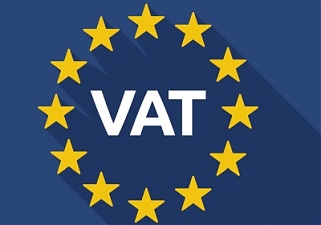Analytics, EU – Baltic States, Financial Services, Good for Business, Legislation, Modern EU
International Internet Magazine. Baltic States news & analytics
Friday, 19.04.2024, 04:17
The EU new VAT system facing modern challenges
 Print version
Print version |
|---|
The common Value Added Tax (VAT) system plays an important role in Europe's Single Market. VAT is a major and growing source of revenue in the EU, raising over €1 trillion a year, which corresponds to about 7% of the EU's GDP; one of the EU's own resources is also based on VAT.
The proposed measures follow up on the Commission's proposals for a deep reform of the EU VAT system presented in October 2017, and the VAT Action Plan towards a single EU VAT area presented in April 2016 ( see weblinks below).
The new measures aim at building trust among the EU states so that they can exchange more information and boost cooperation between national tax authorities and law enforcement authorities. Once in force, the new VAT system will provide the EU states with areliable exchange information to cooperate closely in combating criminal and terrorist activities concerniong taxation.
Following the agreement, Pierre Moscovici, Commissioner for Economic and Financial Affairs, Taxation and Customs, underlined that the new rules confirmed the EU states' willingness to tackle the problem of VAT fraud together. The EU is making real progress on VAT reform, towards a system that stops all sorts of criminals. The Commission's package of VAT proposals will have a profound impact on VAT fraud and a positive effect on the public finances and EU states' budgets.
The new rules will strengthen cooperation among the EU states, enabling them to tackle VAT fraud more quickly and more efficiently, including on fraud performed online. More use will be made of IT systems which should replace the manual processing of data.
VAT information and intelligence on organised gangs involved in the most serious cases of VAT fraud will now be shared systematically with EU enforcement bodies.
Finally, improved investigative coordination between tax administrations and law enforcement authorities at national and EU level will ensure that this fast-moving criminal activity is tracked and tackled more quickly and more effectively.
The new measures will give a major boost to states' ability to track and clamp down on fraudsters and criminals who steal tax revenues for their own gain.
Perspectives
The new cooperation rules will be published in the EU's Official Journal and enter into force in July 2018. As the implementation of the automated access to the information collated by the customs authorities and to vehicle registration data will require new technological developments, their application will be deferred until January 2020.
More information in the wollowing links: - Q&A on the new tools to combat VAT fraud; - Action Plan on VAT – Towards a single EU VAT area; - Press release on reform of EU VAT rules; - Q&A on reform of EU VAT rules; - Factsheet on reform of EU VAT rules
Source: European Commission - Press release "VAT: European Commission welcomes adoption of new tools to combat fraud in the EU", Brussels, 22 June 2018. In:
http://europa.eu/rapid/press-release_IP-18-3868_en.htm?locale=en
Latvian version: http://europa.eu/rapid/press-release_IP-18-3868_lv.htm








 «The Baltic Course» Is Sold and Stays in Business!
«The Baltic Course» Is Sold and Stays in Business!

